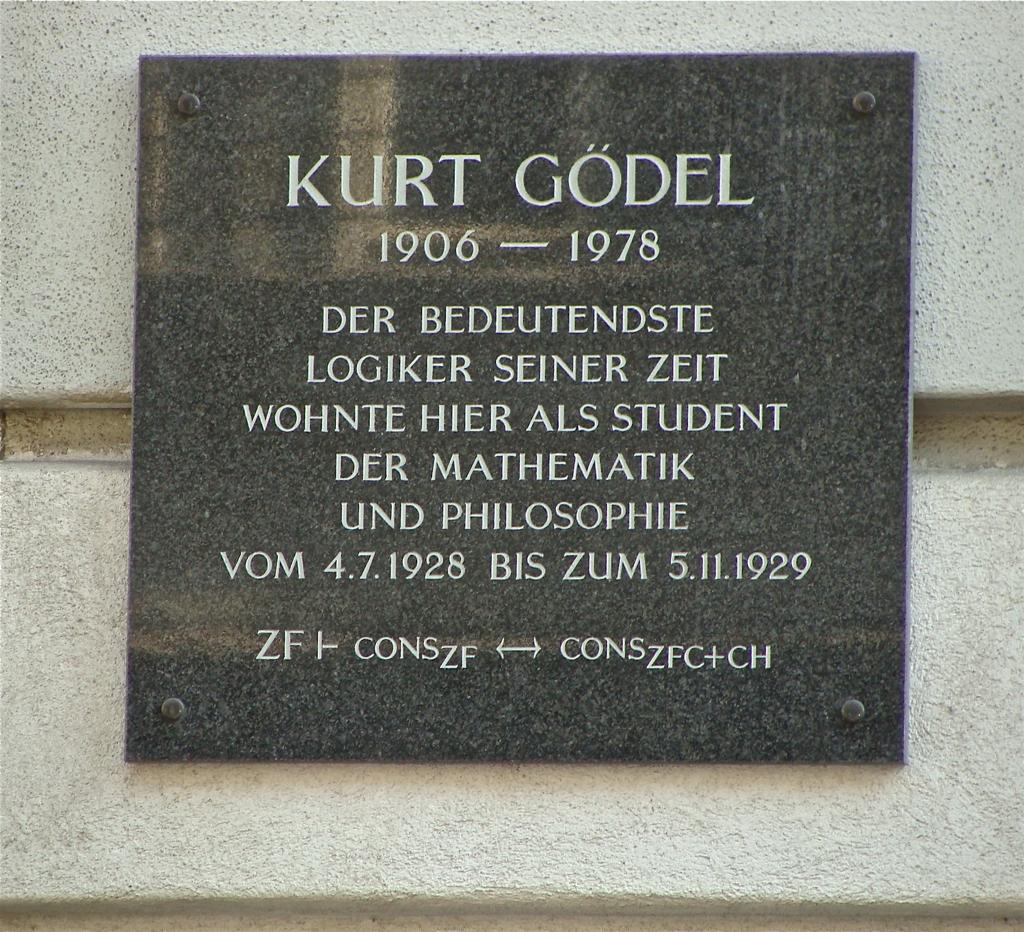
(Wikimedia Commons)
A few days ago, I discovered that David Grandy, now an emeritus professor of philosophy at Brigham Young University and the author, previously, of books on such topics as Magic, Mystery, and Science: The Occult in Western Civilization (2003), The Speed of Light: Constancy and Cosmos (2009), and Everyday Quantum Reality (2010), had dropped off a new, self-published book of his (Worlds Without Number: An LDS Perspective on Infinity) at my office.
Here are some notes drawn from one section of the book, pages 132-134. Dr. Grandy begins with a reference to G. W. Leibniz (1646-1716):
His dream, according to Rudy Rucker, was to find a “universal system” of reasoning that would straightforwardly decide all disputes, whether philosophical, scientific, political, or religious. This dream continued to inspire thinkers well into the 20th century. In 1925 David Hilbert, a leading mathematician, proposed that mathematics could be formalized or packaged in a perfectly complete and consistent manner. No loose ends, no stray paradoxes, no leaps of faith, no fingerprint of human fallibility.
Among other things, Hilbert was concerned about self-referential scenarios like the liar’s paradox, a classic expression of which is found in the New Testament. Paul informs Titus that the people of Crete are “always liars” and quotes a Cretan statesman as his source for this allegation. But if Cretans are always liars, would not the statesman’s claim itself be a lie? Or, consider the sentence, “This statement is not true.” For those who assume that every truth claim can be straightforwardly adjudicated as true or false, the statement is problematic owing to its self-referential nature. Poke it with one characterization and it turns over, almost like a living creature, to announce the opposite. If the statement is true then it is not true, where not true may mean false, silly, meaningless, contradictory, or unverifiable. But if it is not true — that is, if the claim it makes regarding itself is not true — then it is true, which characterization flips it back to being not true, and so on.
After a few lines describing Hilbert’s unsuccessful attempt to deal with the liar’s paradox, Dr. Grandy continues:
In the early 1930s, . . . he saw his program shot out of the water by Kurt Gödel, who demonstrated that formal systems of thought (Euclidean geometry, for example) inevitably depend upon more truth than they can prove. In the words of one commentator, “There will always be truth beyond the reach of proof.”
That last line stuck out in my mind because one frequent commenter on this blog, an ideological atheist who is committed to as rigid and unadorned a version of scientism as I’ve personally encountered, has been insisting, repeatedly, that anything that cannot be demonstrated is not true but is mere imagination. (Of course, his rule that “anything that cannot be demonstrated is not true but is mere imagination” is, itself, beyond proof.) So the upshot of Gödel’s famous 1931 “incompleteness theorems,” that “There will always be truth beyond the reach of proof,” is of some particular current interest to me.
As David Grandy puts it,
Gödel produced a proof that rules against the absolute hegemony of proof. Our best thinking, our best arguments, our most celebrated intellectual triumphs, are not ultimately decisive because they cannot lock themselves into place from within; that is, using nothing more than the axioms they are built on and the rules of inference that supply their conclusions. To achieve their results they invariably gather in unprovable truth from the outside so as to keep the game of understanding in play. “New questions” accordingly come “into view,” writes one of Gödel’s biographers.











